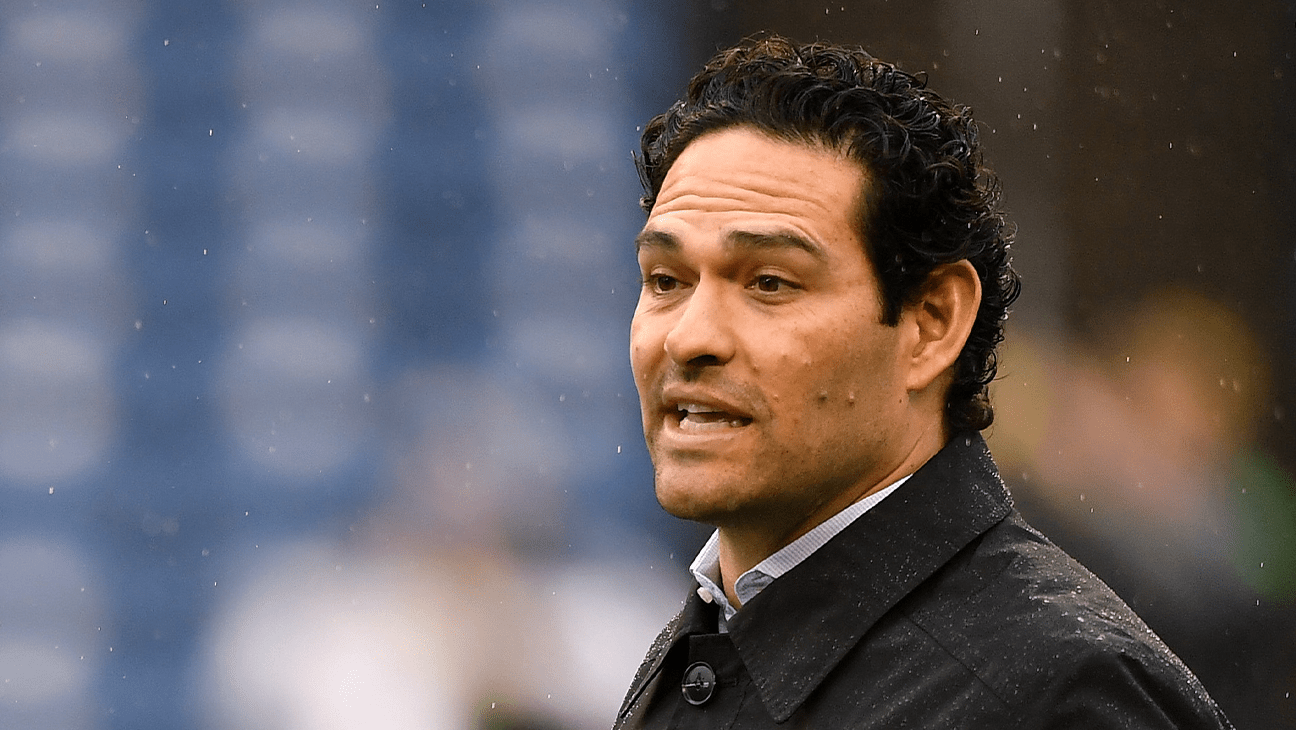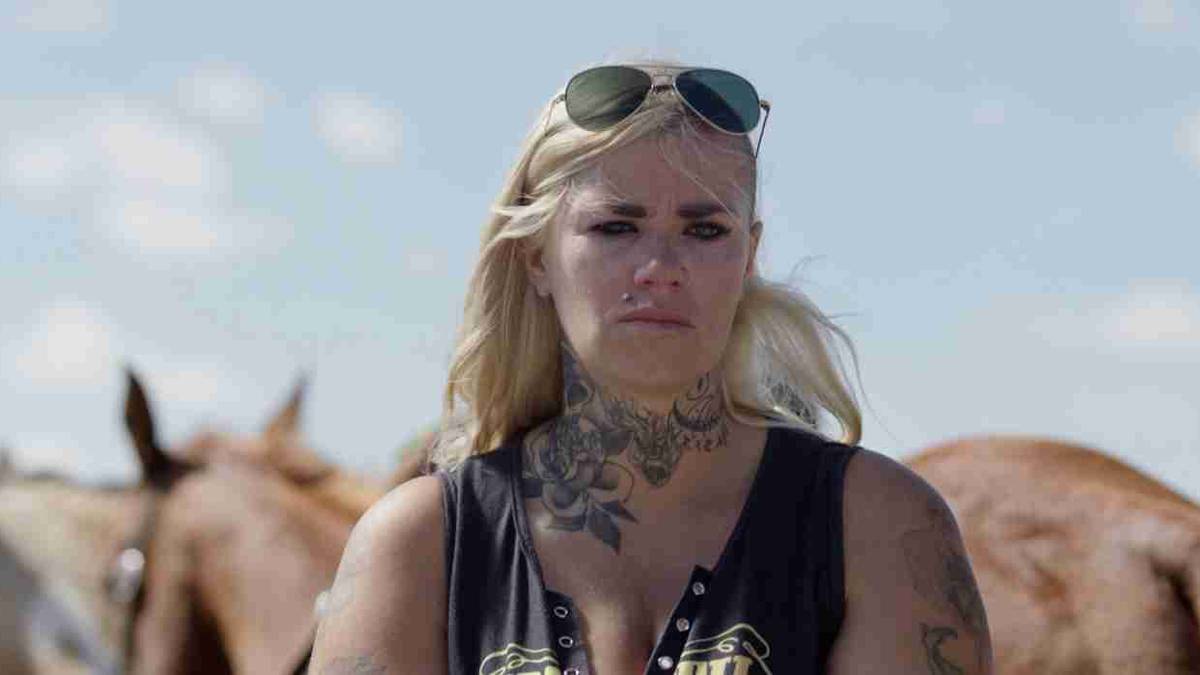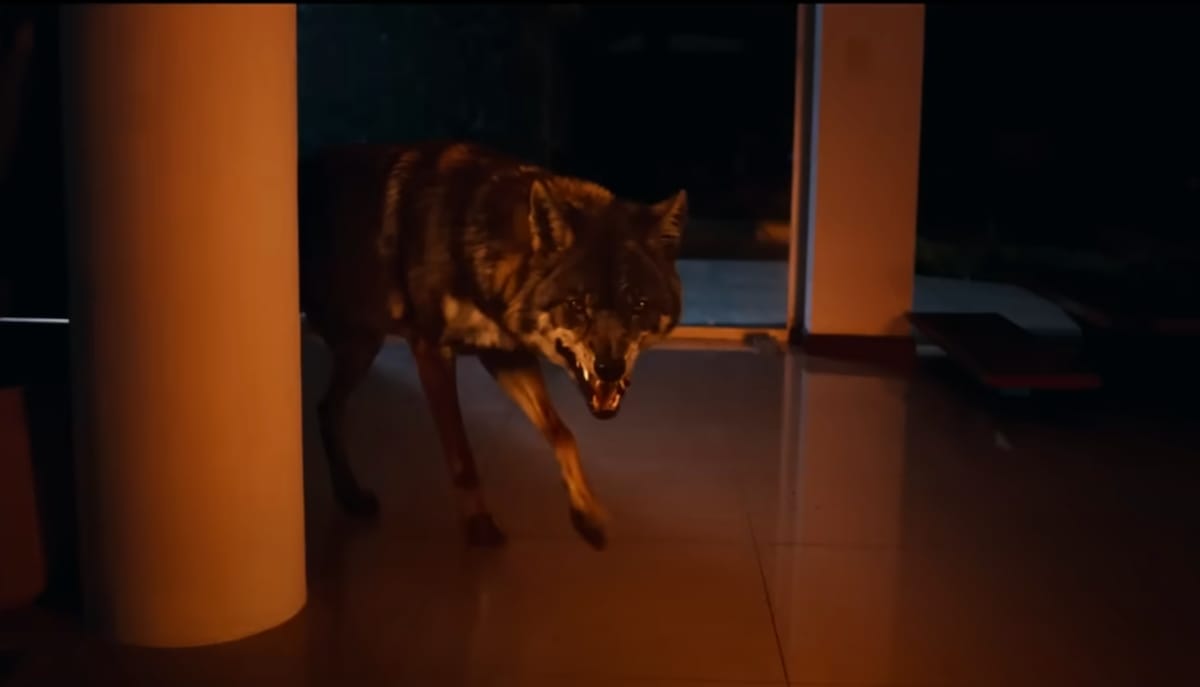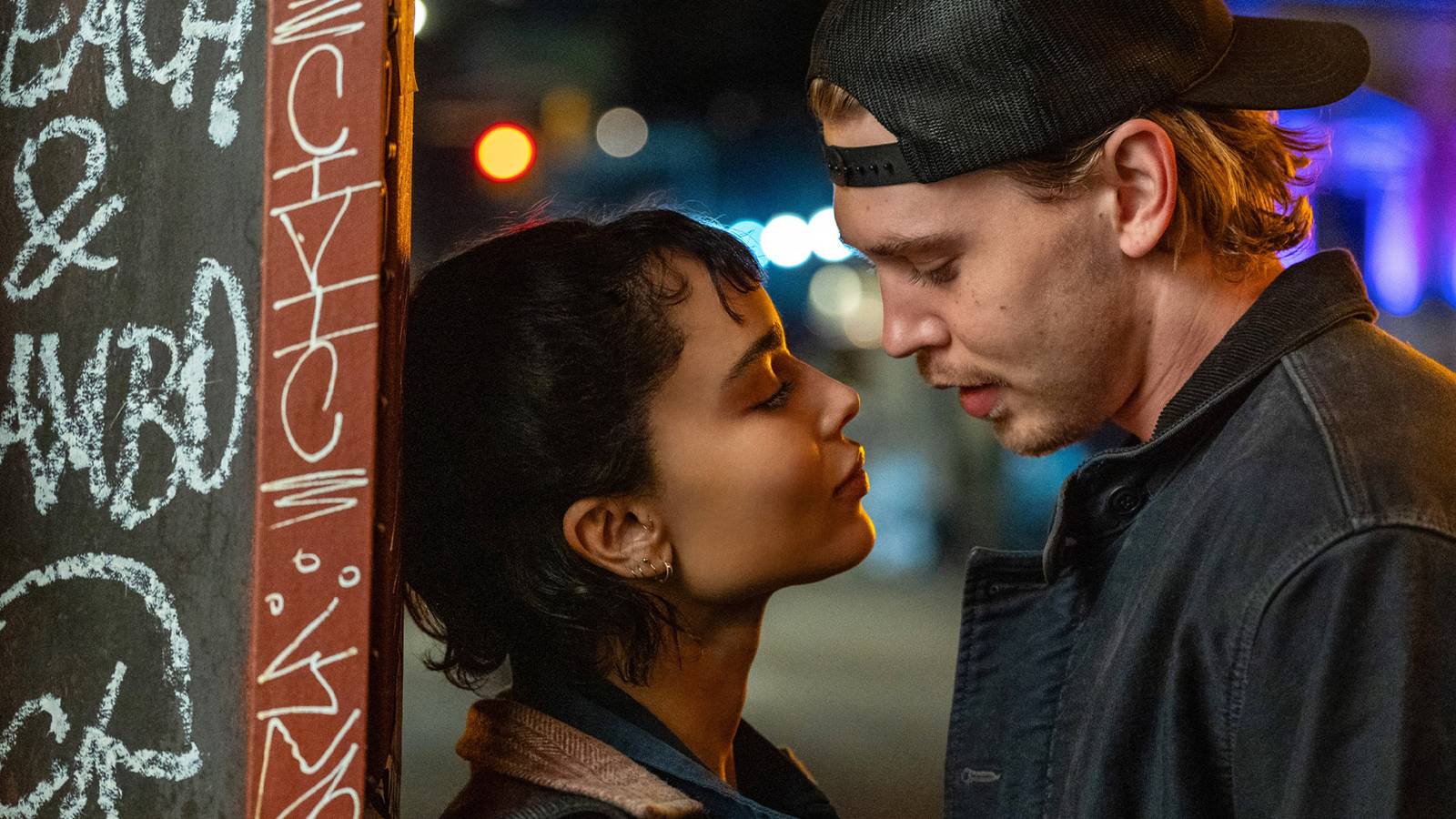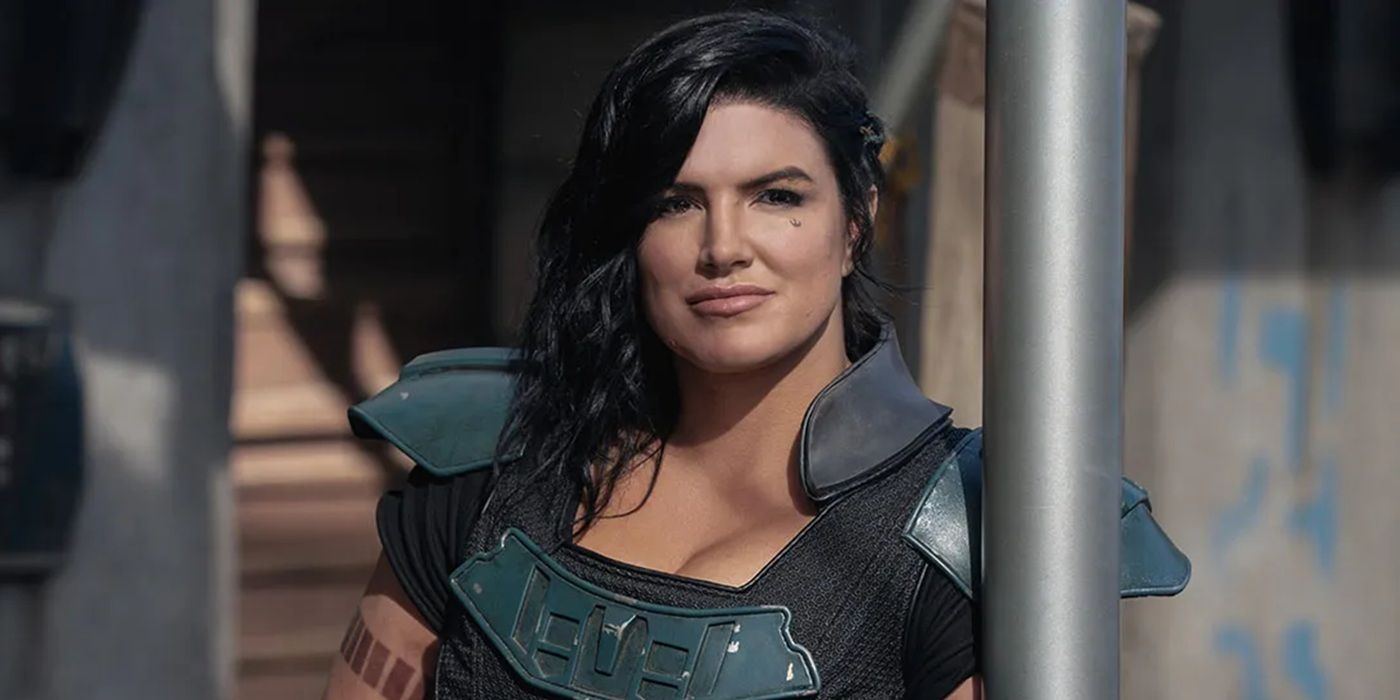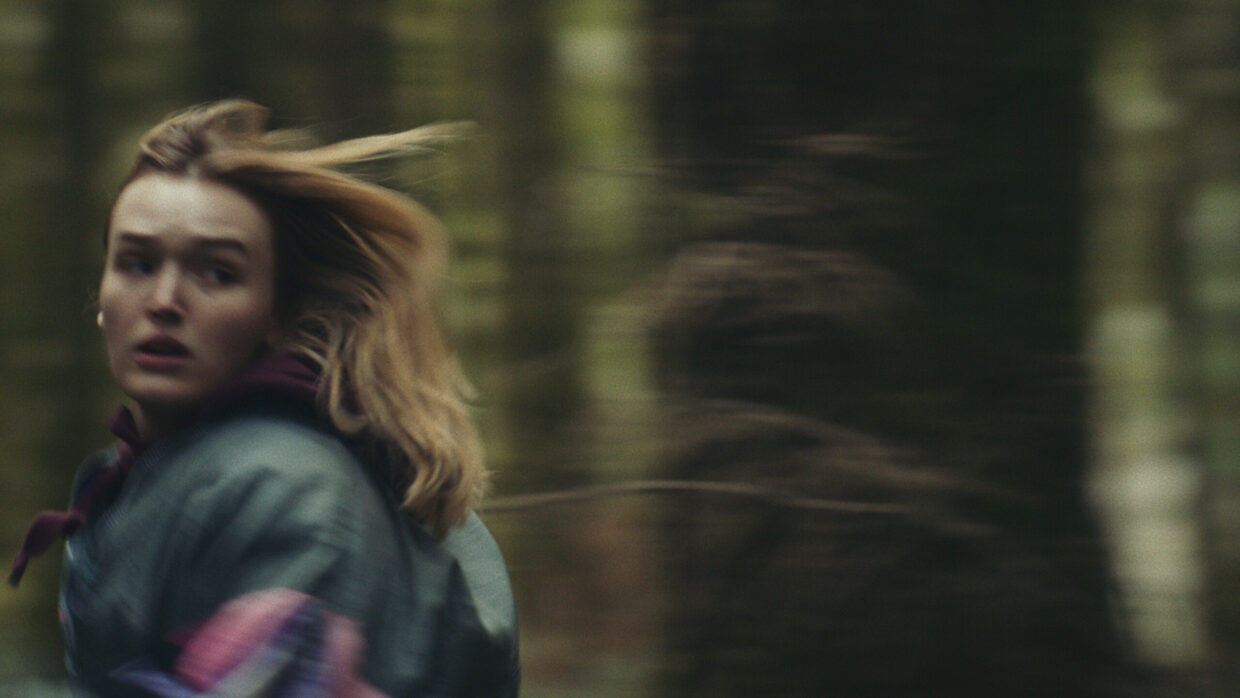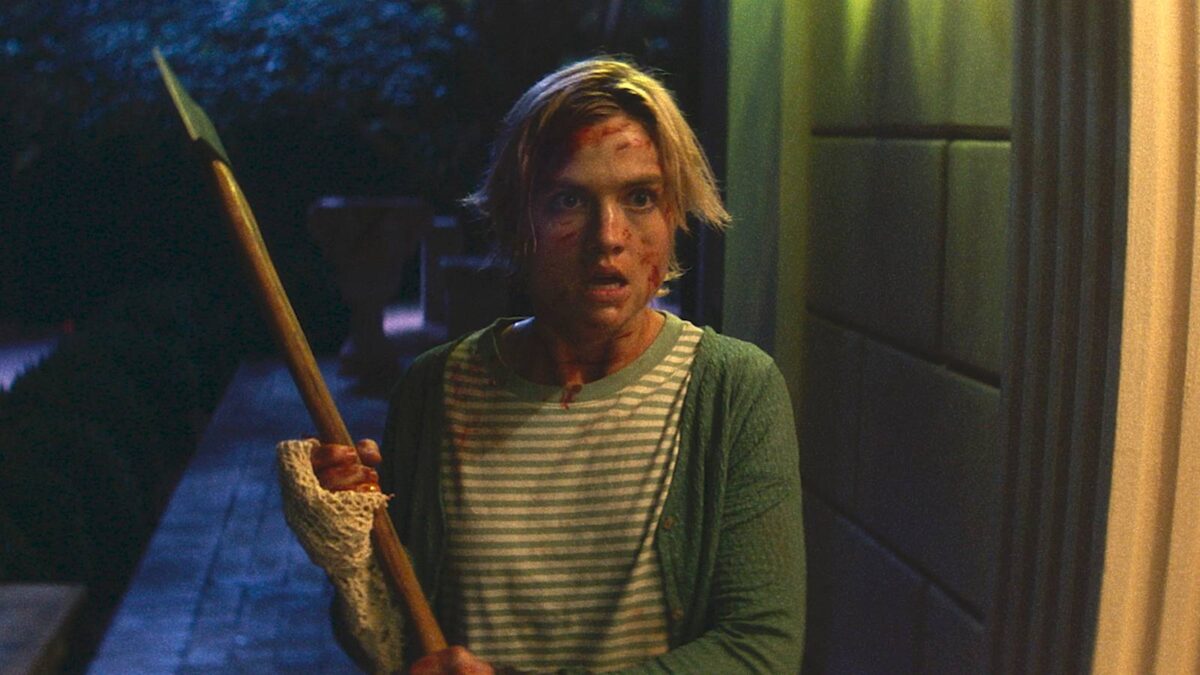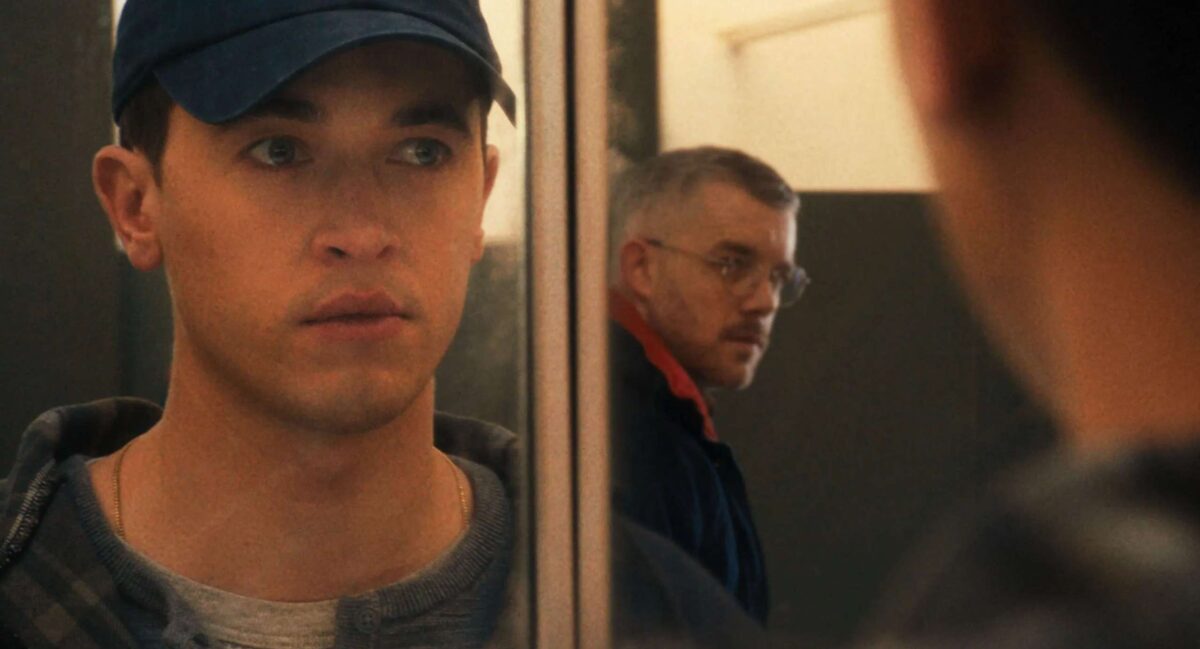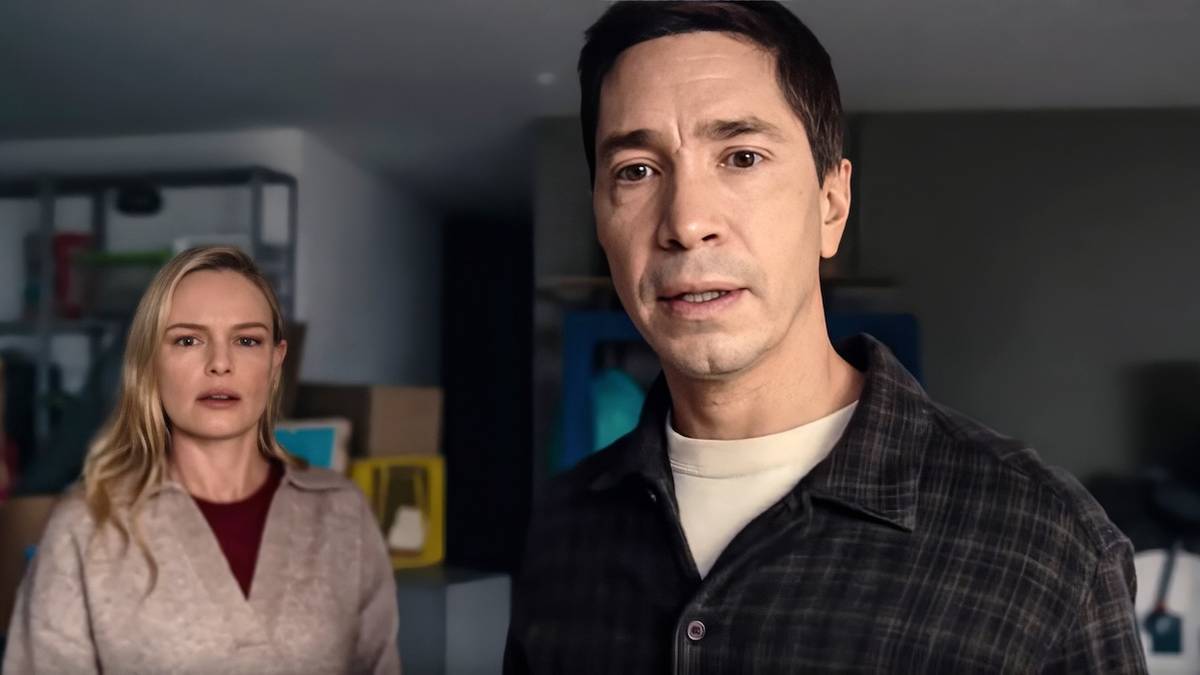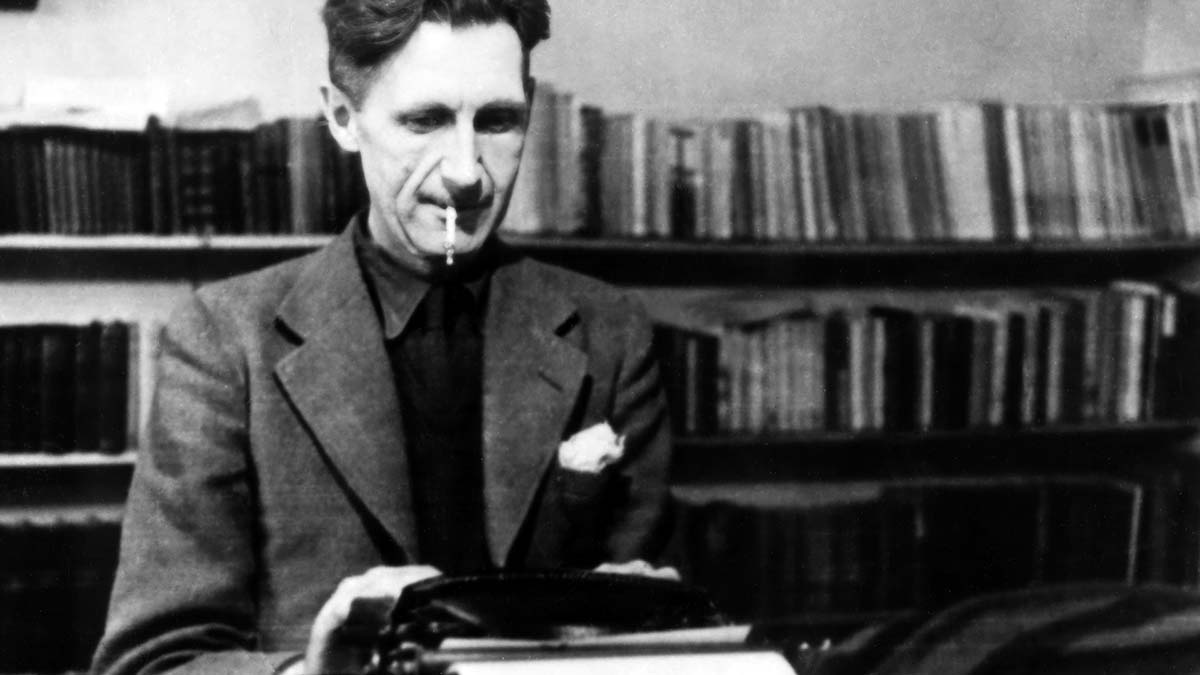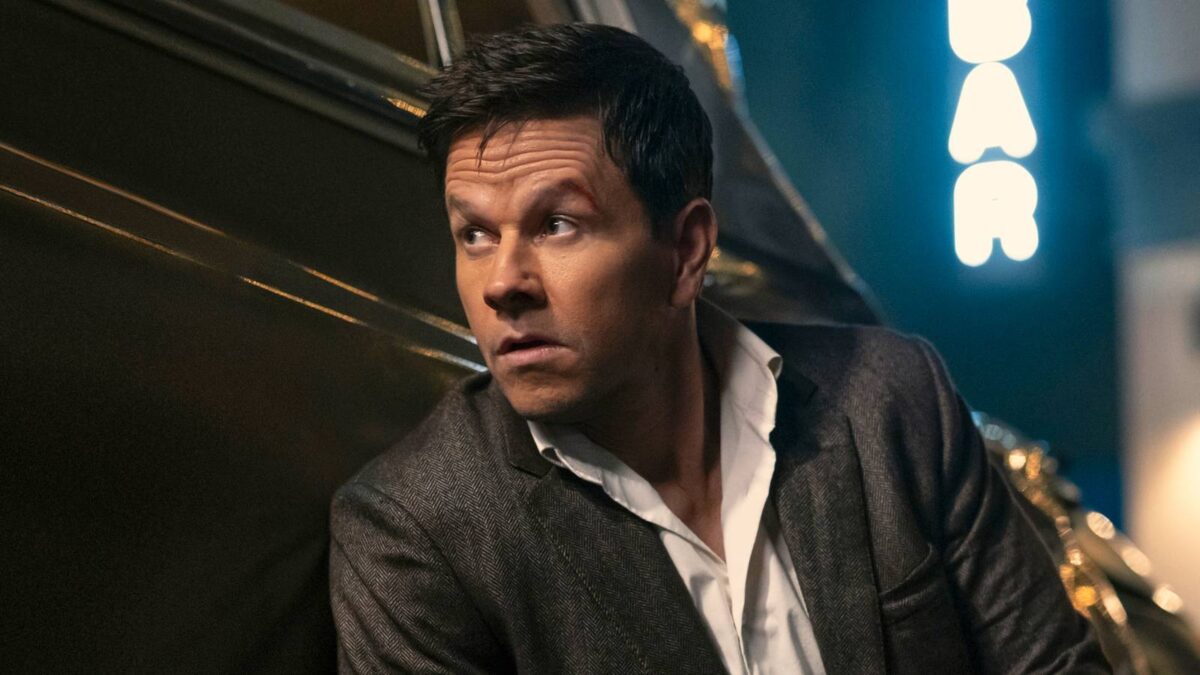
‘Play Dirty’s Shane Black Reveals How This Robert Redford Thriller Still Influences His Movies Today
Oct 6, 2025
Summary
Collider’s Steve Weintraub sat with director Shane Black, producer Jules Daly, and executive producer Susan Downey to chat about Play Dirty.
The movie, based on a character by author Donald E. Westlake, stars Mark Wahlberg, LaKeith Stanfield, and Rosa Salazar as a group of expert thieves pulling off the heist of a lifetime.
During this Q&A, the trio discuss the most unforgettable moments of their careers, Black’s approach to filmmaking, behind-the-scenes of Play Dirty, and what they have in the works, including a potential Sherlock Holmes 3.
Academy Award nominee Mark Wahlberg is never far from a new project, having already starred in Flight Risk, the Mel Gibson–directed action thriller, earlier this year. Now he’s back with another crime thriller, as he stars in Play Dirty, the latest outing from The Nice Guys director Shane Black. Teaming up with Amazon MGM Studios, Black co-writes and directs Play Dirty, based on the Parker book series by author Donald E. Westlake. However, Black is putting his own spin on the books, admitting, “The Parker books are wonderful, but they’re like popcorn,” and promising to deliver a fuller meal for Play Dirty audiences. Black is doing this first by assembling a stacked ensemble, which sees Wahlberg star alongside the likes of Rosa Salazar, Academy Award nominee LaKeith Stanfield, Tony Shalhoub, Keegan-Michael Key, Claire Lovering, Chai Hansen, Chukwudi Iwuji, and more. In the movie, Wahlberg is expert thief Parker, working with a skilled crew to pull off the job of a lifetime, with plenty of double-crossing and twists to keep viewers guessing. Ahead of the movie’s release, Collider’s Steve Weintraub had the chance to chat with Black, producer Jules Daly, and executive producer Susan Downey about all things Play Dirty. From Black’s signature spin on the source material to the Bond-inspired opening credits, no stone is left unturned. The trio also discuss upcoming projects, like what Black has in the works, a Sherlock Holmes 3, and John Cena’s Matchbox. You can watch the interview in the video above, and check out the full transcript below.
‘Play Dirty’ Team on the Most Unforgettable Scenes of Their Careers
Get to know Shane Black, producer Jules Daly, and EP Susan Downey.
Shane Black talking on stage with producers Susan Downey and Jules Daly for a Play Dirty Q&A.Image via Trent Barboza
COLLIDER: I like throwing a few curveballs at the beginning of every Q&A. What’s your coffee order? SUSAN DOWNEY: I found this new thing called Ripple, which is like a pea protein, vegan, kind of half-and-half — high recommend. I don’t even know if you can get it out in the world; you have to get it at the grocery. I throw a little bit of that in, and then just coffee on top. If that’s not around, there’s no coffee to be had. SHANE BLACK: I like Ripple, too, but it’s a different one. It costs five bucks a gallon at 7-Eleven. JULES DALY: But, Shane, I think you’re like a Folgers guy, right? BLACK: Yeah. DALY: He’s a simple coffee guy. BLACK: I like black coffee. Period. We’ll call this Get to Know Our Producers and Director. What is your favorite thing to cook? DALY: Spaghetti bolognese from The River Cafe. BLACK: You cook it? DALY: Yeah, I do. Want to come over and have some spaghetti bolognese? Not tonight. BLACK: Yeah. Susa, what do you cook? You cook actual stuff. DOWNEY: Oh, you’re giving me way too much credit. I don’t even know if this counts. I think I can say I prepare this. That’s kind of like cooking. It’s like cooking adjacent. Robert [Downey Jr.] likes tuna melts, and I make a mean tuna melt. I don’t actually eat it, but he loves it. BLACK: Yeah, I don’t cook. I wish I did. When I was in college, I used to make pizza where you keep pushing the dough and it keeps having holes in it, and then you fill the hole in, and then there’s another hole over here. That’s my cooking. So do you eat out a lot, or are you more like DoorDash or Uber Eats? BLACK: DoorDash is a rip-off. It’s like if you ever want two eggs and a piece of cheese for $60… I’m not arguing with you. BLACK: I don’t know what I do. I look at what’s in the fridge: a can of chili, a can of beans, whatever. And healthy stuff, as well. What is the last movie, TV show, or book that you’ve read that you want to recommend? DOWNEY: I just saw [Paul Thomas Anderson]’s new movie, and I thought it was fantastic. DALY: I watched Being There recently. It’s a great movie. BLACK: I’ll put in a plug for a guy I really like, Scott Frank, who did Queen’s Gambit. He has a new one on Netflix called Dept. Q. Great. Exquisite. Really good. Exquisite. And it got renewed for a second season. BLACK: I didn’t know that. DALY: Deservedly. BLACK: I’m happy. You guys have worked on many projects throughout your career, and I am curious, was there a particular shot or sequence that was really challenging to pull off, or you consider one of the toughest of your careers? DALY: I made a movie called The Grey, and there was a hardcore plane crash in that movie. We built a gimbal around a piece of the fuselage that we strapped Liam [Neeson] into and literally turned it, like, 360, and he got sick. Everyone got sick. The camera crew got sick. But it turned out pretty good. Worth it. I completely agree. Joe Carnahan directed that. DALY: He did. Great job. BLACK: I don’t have a single shot. I just have a challenging piece to sort of put together and edit afterwards, which was the whole car show in The Nice Guys. Six things going on at once, keeping the geography, not having time to get every angle you want, but somehow making it fit so that this guy exits frame here, and here he’s in the background with the subsequent shot coming in, and things like that. By the way, I’m assuming everyone in here has seen The Nice Guys, and if you haven’t, you need to absolutely watch that fucker immediately. Seriously, I believe it’s on HBO Max. BLACK: Buy the damn thing. [Laughs] My bad. You should obviously buy it. DOWNEY: God, it’s a hard question. I’m going to go a different direction. So early in my career, I did a lot of genre movies, and I did this absolutely fabulous one called House of Wax. I think it has to be probably the most memorable thing we did because at the end of the movie — this is a big spoiler alert, and I’m sure you’re all going to rush home and watch this — the house melts because it’s made of wax, right? So we’re there shooting it down in Australia, and I was at the monitor, and I’m like, “Wow, they really upped the fire this take.” And then I’m like, “And they’re not putting it out… What’s going on?” And all of a sudden they’re like, “Get out! Get out!” And we all had to get out. No one was hurt, but we all had to get out of the soundstage. We burned the entire soundstage down. It was kind of famous. It was the largest soundstage in Queensland, and we burned it down. I remember my boss at the time called me and I explained to him what was going on, and he’s like, “You’ve got to go back in and take pictures.” I was like, “There’s no “in” to go back to!” The entire thing was burned. So, it certainly is one of the more memorable set moments, I would say. What happened after it burned down? BLACK: Who got fired? DOWNEY: It was just a big insurance claim. Actually, the special effects, the spray they were using was not correct, and it was building it up as opposed to a flame-retardant thing. So, we just had to pivot, as you often have to do in production, and find other things to shoot. We were near the end of the shoot, which was good. I mean, we were burning the house down anyway, but yeah, it was pretty crazy. I’m very happy that everyone made it out without injuries. DOWNEY: Yeah, I don’t think I’d tell the story if it were dark.
Shane Black Is Still Waiting for the Shoe to Drop After ‘Lethal Weapon’
“I suffer from imposter syndrome of the first order.”
Mel Gibson and Danny Glover holding guns while looking at the camera in Lethal Weapon.Image via Warner Bros.
Shane, I want to jump backwards for you. Very early on, when you were 22 years old, I believe, you sold the script for Lethal Weapon, and you sold it for a lot of money for a 22-year-old. What do you remember about that time, and seriously, what is it like as a 22-year-old to sell a movie like that? It’s crazy. BLACK: It is crazy because I suffer from imposter syndrome of the first order, which is to say that every time I finish a script, I think, “Okay, I’ve written the last funny line I’m ever going to write.” How I did that, I don’t know. It seems to work. I don’t know why or how I did it. I can’t do it again. So, all these things would combine. So when I sold something, there’d be sort of a head scratch, looking for the guy who wrote the script that’s worth so much money to somebody. But then, it shifts, because then they try to change something, and it’s like, “Don’t you fucking touch that!” Because now you go, “Oh, I guess I do believe in it now.” So, it’s one of those things where you start with this kind of misguided passion. You write a script, you doubt yourself, and gradually you come to fall in love with and accept, about, I’d say, two weeks in, three weeks in, “I can do this again. I know how to do this.” That, to me, is what was unique about that time, was having to fight my way past the considerations of having made way too much money for someone my age, and say, “Okay, I can do this again. It wasn’t a fluke.” Because everyone would look at me like, “Yeah, what the hell do you think? We’ve been working at this for 10 years.” That’s the thing. Someone says, like, “I saw that show Charles in Charge, and that’s terrible. My writing is at least as good as that. I should be in TV!” So you’re saying that your slightly less shitty writing qualifies you, that they owe you a job? Because mediocrity is your goal. Just anything that you can get over on people. To me, it has to be great, and it has to be your best work. So, to me, the imposter syndrome was a killer because I always thought, “I’m not doing my best work.” But I had people to help me, like one guy who’s in the audience that I’ll introduce. He’s a wonderful director named Peter Hyams, who directed films like Capricorn One, Outland, 2010 [The Year We Make Contact], and he was my mentor for many years. If you hear me say something that sounds quaint and sort of pithy, it’s probably from him. I’m a fan of your work, also.
Shane Black Explains the Significance of Christmas in His Films
He was first inspired by a Robert Redford movie.
Joe Turner (Robert Redford) on the phone in ‘Three Days of the Condor’Image via Paramount Pictures
Why is it that you love putting Christmas in all your movies? BLACK: You could probably answer for me at this point. It’s because Christmas offers a sort of arena, doesn’t it? A sort of hush at the end of the year when lonely people are lonelier. The sense of an outsider looking in through a glass window with people who implicitly got a memo he skipped of how to just sort of live in the daily weeds of life — meet relatives, enjoy dinner, laugh and drink with friends — and a Christmas that seems all but unattainable to the guy outside in the snow. And yet, against the backdrop of people passing and singing and chatting, this person must then find his own personal version of Christmas, and it’s always going to be a weird, dark sort of dive that comes up with something that’s a little more precious because he had to dig deeper for it, those little nuggets of Christmas. In Los Angeles, I was walking late at night with the wind blowing, and there was a little plastic candle of the Virgin swinging on a line from a Mexican lunch wagon, and I looked at it in the dark like a beacon. I thought, in its own way, that’s so moving, this little blowing, cracked plastic Virgin. It’s as impressive and powerful in its own way as the 40-foot-tall Christmas tree on the lawn of the White House. So, I just love the sense of shared experience, the sort of retrospective it gives us, where we’re asked to take stock and look back on our lives. Also, I first saw it and its use in Sydney Pollack’s film Three Days of the Condor, and I thought it just had some magic to it. Now I don’t want to do it anymore because once you start to notice, like he asked that question, it’s like, okay, you noticed, and now it’s a one-trick pony. I gotta get the hell rid of it. This movie, I didn’t want to do Christmas, but I wanted to do winter in New York, so, okay, we can set it in February, or we could just do Christmas. Jules, I do have an individual question for you. I am a huge fan of The Assassination of Jesse James by the Coward Robert Ford. I’ve spoken to Roger Deakins about this, and Andrew [Dominik], and Roger was very specific with me about how he saw a longer cut of the film that was an extra 30 or 45 minutes, and how he loved that version. What are your thoughts on the longer version, and how the hell can I and everyone else in here watch it? DALY: I don’t even know if it exists. I think we ended up cutting the better movie. I do. I think that Andrew will always go long, in a beautiful way. It’s hard for him to get rid of anything that he loves, and so he held on tight to it for a long time. But we collectively, with Brad [Pitt], with Ridley [Scott], with Dede [Gardner], came to the conclusion of the best movie. Sure. I would still love to see the deleted scenes. DALY: Let me look. I’m moving next week, so I’ll look for you.
Play Dirty producer Jules Daly smiling and holding a microphone at a Q&A.Image via Trent Barboza
I swear to you, if you tell me I can see them, I will watch them tomorrow. The second you let me know. DALY: Okay. Deal. BLACK: Jesus Christ, dude, relax. [Laughs] I love that film.
Shane Black Is the Expert on Experts
The writer-director credits his passion to author Donald E. Westlake.
Play Dirty writer-director Shane Black talking into a microphone on stage at a Q&A.Image via Trent Barboza
Jumping into why I get to talk to you guys tonight. Shane, you’ve been talking about this for a long time. What is it about Parker that has had like, “I need to make this?” And what was it about the material for both of you guys that was like, “I want to be involved?” BLACK: There’s a kind of old-school sentiment, a feeling in the bones, that comes from when I read these books, I cut my teeth on this since I was literally nine, 10 years old, and this type of fiction, and the dance it represents between the author and the audience. [Donald E.] Westlake is the mystery writer. He’s the one that the people who sell a lot more books go to and say, “You’re the real one.” If you go to a mystery writer and say, “You’re a bestseller writer, who do you read?” They’ll go, “Come here. See, the good stuff behind the bar is Donald Westlake.” If you don’t know him, read him. It’s like a fine bourbon, this guy. He’s been writing for years. He died in 2008, and it’s a legacy that I get to be a part of. All these films that portrayed Parker in their various names, it’s our iteration of it. This woman, she’s so influential to me. I want to learn from her, so ask her something. She can talk, and I will learn. DOWNEY: Well, I can answer that. I love an expert; that’s why I love working with Shane. I’m sure you could tell if you weren’t already a fan of his, even in the few minutes you’ve been listening to him, he knows his shit. When it comes to this genre or this series of books, or honestly, all the Donald Westlake ones, including the ones he’s done as Richard Stark, which is what we took the Parker character from, he knows exactly how to cherry-pick the best things from it, the best lines of dialogue, and he does this with Chuck and Anthony [Bagarozzi], who he writes with, who are also amazing. BLACK: Let’s call out Chuck, the co-writer. Chuck Mondry. DOWNEY: What I think Shane has in common is that Parker, too, is an expert, and so I think you have an expert writing on an expert, and that’s just, like, double the pleasure for me. But I’ve known Shane a long time. We did a little movie together called Kiss Kiss Bang Bang. I remember we actually shot some at his house. I’d actually been to parties at his house in my younger years before that, and he has just bookshelves filled with all of these kinds of pulp novels, and he just knows this stuff like the back of his hand. He knew exactly what he wanted to do with this version of it. I got to be sort of a proxy to his work on Iron Man 3, and the way he shapes dialogue, the way he shapes character dynamics, and the crazy twists and turns that are only Shane, I was very excited to see how he was going to take the expert that is Parker as a character and bring him to life. So, I was just thrilled. BLACK: Jesus, thank you, Susan. DOWNEY: Did you learn anything, Shane, or did you just get really embarrassed? BLACK: You just sprayed me with my own scent, basically. DOWNEY: It’s a producer’s job some of the time.
Play Dirty executive producer Susan Downey smiling and talking on stage at a Q&A.Image via Trent Barboza
Jules, talk a little bit about what it was about this material that said, “I want to be involved.” DALY: Not that it wasn’t the material, but it was Shane for me. They seem to like you. DALY: Who writes like Shane Black? I mean, there are a couple of other good writers in town… DOWNEY: Chuck and Anthony. BLACK: Blessed. We are blessed. I am. I’ve been in this business for 40 years, and others have come and gone. When she says that, I’m well aware of the ticking and fleeting time. The fact that I’m still here, I’m not the world’s greatest writer, like you say, I’m just lucky, so blessedly lucky, to have an opportunity still to do this. And hopefully, if this succeeds, I’ll do it again. If it doesn’t, I love you all. Goodbye. DALY: Very dramatic. I’m confident you’re going to be doing this again. I’m very confident.
‘Play Dirty’ Puts a Cinematic Spin on Westlake’s Parker
“It’s the only thing that hasn’t been done. Let’s try it.”
Mark Wahlberg as Parker crouching and leaning against a car in Play Dirty.Image via Prime Video
So I love it when things happen that I’m not expecting, and the opening of this movie has things that I was not expecting. Talk a little bit about the twists and turns of the beginning and the horse race. That shit’s crazy. BLACK: We wanted to do it slightly different. The Parker books are wonderful, but they’re like popcorn. They’re skinny; you read one in the afternoon or a day, and then you read more. And after four of them, you sort of get a sense of this entire world, this backstage dance of a professional thief and his partners. So, what’s missing in any individual book is a scale. Even the movies. I love all the Parker movies that have been made, but it’s usually a bank heist, it’s an armored car, they’re up against a hitman, or it’s a jewel heist. We wanted to craft a slightly more cinematic and larger version without compromising, hopefully, the sense of who Parker is. There’s always going to be the purist who says, “You suck. You blew it. Parker doesn’t smile. There are no jokes. Fuck you!” And maybe there’s someone in the audience tonight, but we wanted to just make it lively. There are so many gloomy mood pieces about criminals these days, and Westlake, even the Parker books, are gritty, and as cruel as they can be, they’re supposed to be fun. It’s supposed to be a pact between Westlake, the author, and the reader of a cat-and-mouse, and so that’s why we scaled it up. It’s like, “It’s the only thing that hasn’t been done. Let’s try it.” Every production that you work on, there’s always going to be individual challenges you have to overcome. With this, what were some of the big challenges you guys had to overcome behind the scenes in terms of getting the green light? I know that you’ve been working on it for a while, and it’s been in development for a while. DOWNEY: Honestly, a green light is typically a budget conversation. It’s, “How are you going to mount this in a responsible way for the proper price?” And this did bring that challenge. This is a Christmas movie set in New York City that, to do it, Jules had to find a way to make Australia in the summer work. Now, we did get additional photography in New York for a few key things, which was always part of the production plan, but I would say that that was probably the biggest challenge.
Mark Wahlberg and Rosa Salazar wearing jackets while their backs face a car on fire in the street as Parker and Zen in Play Dirty.Image via Prime Video
DALY: Definitely. I read something today that referred to our end scene in the movie, in New York, as a CG shot. So, is that a compliment or not a compliment? Because we shot in New York. BLACK: Well, this is the problem with the internet. They hear the little snippets. They hear it’s shot in Australia, so “I know. I know. Me, me, me. I know it was shot in Australia, so I’m going to go online and wax poetic about how everything…” I wish people would read more than one thing before they become an expert on the thing that was talked about in what they read. DOWNEY: Yeah, that was Times Square. That was Radio City. Those are real. DALY: We were in New York. DOWNEY: That was actually Brooklyn Alley. DALY: Yeah, at one point. BLACK: The actors were all CG, though. I’m going to tiptoe as I ask this question. This film shows what happens when a bullet goes through an ear. I don’t know if anyone’s picking up what I’m saying. Again, I’m not mentioning any words, but I’m just curious, when did you write this? Was it before or…? BLACK: Oh, God, yeah. When was that? That shot occurred in the year of the election, right? 2024. We wrote that in 2023. So don’t go linking me to that shit! I didn’t say any names. I was just asking. Just talking about how damage happens when bullets go through ears.
‘Play Dirty’s Opening Credits Were Designed With a Bond Legend
It’s also packed with Easter eggs for the movie.
Everett Collection
So, the opening credits of the film are really cool. Can you talk about how that came about and why you wanted to do them? BLACK: These guys made it come about. I said I wanted to do a credit sequence, not necessarily Bondian, and they got me the guy who does the best Bond ones. DALY: Danny Kleinman. BLACK: Danny Kleinman, who did Skyfall, the greatest pre-credit sequence ever in a movie, with that beautiful song by Adele. She got him to do what we could afford, which was a cartoon, but still great. [Laughs] DALY: But you guys had so much fun doing it together, you and Danny, right? Shane and Danny definitely built that sequence together. It was fun because we didn’t do that sequence until after we’d been shooting the film. BLACK: But you guys made it happen. I said it, and you said, “Well, let’s see what happens, because we don’t know where the money’s going to be.” And then you came back and said, “If you want it, you got it.” God bless you both. DOWNEY: That’s the way it works. But it was because it was important. You wanted to set the tone, and it was really a way to set the tone. There are wonderful, essentially, Easter eggs in it. When y’all go back and watch it again on Amazon, you get to see that there are so many pieces of the plot that ultimately unfold that are kind of hinted at, which you don’t know that, it just looks beautiful, and there’s great music, and it’s interesting and all that. But it was quite clever, and it really did set the mood and allowed, also, that time cut without it just being a cut to black. I think one of the reasons the film works so well for me is your supporting cast. I even really, really loved Nat Wolff’s performance. I’m curious how much with him was in the script and how much did he add a little flair on set because he delivered. DOWNEY: His big contribution, which he takes great pride in, was the neck brace. He requested the neck brace. BLACK: I think what he does is just live in the moment and sees what happens, and that’s the best acting advice you could give. You study the role, you figure it out, you learn the beats, you learn the dialogue, you think about your character, you live it. Then, when you step on stage, you forget everything and just live in the moment. Now you’re in the now. And that’s what he would do. He would just react and be in the now. So, that’s what I think made him so great.
Nat Wolff in Play DirtyImage via Prime Video
Talk a little bit about the rest of the supporting cast, because it really lives or dies with these other actors, Rosa [Salazar], LaKeith [Stanfield], and [Keegan-Michael Key]. How did you decide on this cast? I’m always curious behind the scenes about how much the studio is saying, “We would like to put these people in the movie.” How does that all get figured out? BLACK: No studio. DALY: No, they left it to Shane. Of course, there are budget reasons. BLACK: They said, “We can’t afford these guys.” [Laughs] DALY: But I will say that, maybe more than any director, and don’t be shy about this, every actor wants to try to be in a Shane Black movie. So, it was actually really easy to cast this movie, because everyone wanted to be in it. It was sometimes an availability thing, sometimes a budget thing, but we had a plethora of choices, and I think we landed right with our team, with our group. BLACK: Also, because of Australia, we had to add a couple of people who actually were registered in Australia in their version of SAG to get our rebate. So, we found Chai [Hansen] and Claire Lovering. They’re wonderful. Who loves Stan in the movie? That guy is on the most popular show in Australia right now, where he plays a merman. So, let’s get him over here. I love talking about editing because it’s where it all comes together, so talk a little bit about what it was like when you guys first got in the editing room and how the film possibly changed as a result of showing it to friends and family? BLACK: Well, I had these two helping, and that helps because the edit is where everything comes down. Look, if you hear a film wraps, “wrapped photography,” and you think, “Wow, they’re done now.” No, it’s like, “Wow, 15% there.” Because shooting a film is just shopping. You get the ingredients — you get your cucumber, your tomatoes, your lettuce, your croutons. Then you’ve got to go cook it, and the edit is the cooking process. We had three or four cooks. DALY: We also had Chris Lebenzon. BLACK: Oh, and Chris Lebenzon, the greatest editor ever. He’s probably my favorite editor ever. DOWNEY: He’s fantastic. He’s always willing to try stuff. I love the edit, as well. You really get to see things come to life, and you have to try things, you have to bring things down. It’s like a great puzzle because you’re just like, “What if we just took that little piece out,” and all of a sudden everything falls. It’s like a whole different rhythm comes into play. You can try things. And when you do have a good editor and when you do have an open-minded director, there are many possibilities. Sometimes you’re like, “Something’s not working. Here’s what we’re going for.” And then by tomorrow morning, your editor might have, like, three different versions to show you of something, just to see what we could do. So, it’s actually really fun. There’s a bit of discipline you have to do to it because you have to adhere to the time, but within that, there’s a lot of opportunity to play. BLACK: And we’re talking about like, “Give me two less frames here. Put three back over here,” because it’s that chancey. DOWNEY: I remember the scene after he drops Nat out. You stayed with Nat, initially, and you saw him get up and this and that, and then you kind of went inside, and then you were with Mark [Wahlberg] when he heard it. And we said, “What if we didn’t do that? Just stay with Mark, and he hears it in there for the first time.” I don’t know how it played tonight, but it usually gets a laugh. BLACK: Yeah, it plays like a Python bit. He walks away, and the guy goes, “I’m not dead!” DOWNEY: [Laughs] But it’s those kinds of things. It’s, “Whose point of view do you stay in?” Because if you’ve covered it, you’ve got a lot of options.
Claire Lovering, Rosa Salazar, Keegan-Michael Key, LaKeith Stanfield, and Mark Wahlberg in Play DirtyImage via Prime Video
That’s the reason why I love talking about editing, because that changes the entire scene, whether or not you are on which person. Sometimes, a shot that you remove changes everyone’s perspective on a character. For example, without going into spoilers, in the third act, somebody gets shot, and it’s off-screen, and the way you feel about a character might be different if you saw it being done. BLACK: Exactly. It’s like a piece of film that goes from here to, like, a mile away, and you get to walk along and tinker. There was always a guy in my neighborhood at midnight, he’d have his garage door open and a car in there, and he’s making noise and playing fucking music. Now I understand the tinkering, and it’s night, and, “Oh, shit, do I have to go home?” Because you’re just tinkering. It’s infinitely obsessive. It’s good for obsessive people. I’m a recovering alcoholic; I used to be obsessed with, “Where am I going to get my next drink?” I just shifted it over here. So, hopefully this works. DOWNEY: You know what Robert always says? I think he got this from [Jon] Favreau; it’s a very Favreau statement. Certain people, and I’m definitely one of them, like to pick fly shit out of pepper. That’s the phrase, and I am definitely one of those people. BLACK: Details.
‘Sherlock Holmes 3’ Would Take the Franchise in a “Different Direction”
The trio share what’s in the works for the future.
Robert Downey Jr. and Jude Law chat on the street as Sherlock and Watson in 2009’s Sherlock Holmes by Guy Ritchie.Image via Warner Bros.
We’re almost out of time, and I’m going to go down the line because I just have a few individual questions, if you don’t mind. Susan, what can you tease about what’s coming up at Team Downey? DOWNEY: Well, if all goes according to plan, we have actually a little psychological horror movie that we’re hoping to be doing before the end of the year, based on Paul Tremblay’s bestselling novel, A Head Full of Ghosts. You guys made two really good Sherlock Holmes movies, and I’m just curious, how close did you guys ever get to the starting line of a third one, or has the script never been there? Or was it scheduling? What ended up happening? BLACK: Is it upcoming? DOWNEY: God, that is loaded. How much do I give? We came pretty close at one point, and I think I am grateful that we didn’t make that version of it. I won’t go into what that was, which isn’t meant to sound cryptic. It just didn’t work out timing-wise, because we couldn’t get it in before Jude [Law] was going to be unavailable. I think it was a good thing that we all stepped back. And then there was a big old pandemic and all that kind of stuff. I would love to bring a third Sherlock to the world. I really would. And we’ve been playing with it for a long time. We’ve been talking about a slightly different direction. It’s always been kind of set in America, and whether that’s a good idea or not, I’m not sure, but I love it. I love that idea. So, I would just love to do it. It’s just hard. It’s been a while, the bar is really high, or at least Robert [Downey Jr.] has set the bar really high, so I don’t know. Do you guys want to see a third Sherlock? BLACK: Or a fourth Iron Man. DOWNEY: Double header. I have so many things to respond to that one. Jules, you are doing two projects that I’m very curious about. One is Matchbox, and it’s being directed by Sam Hargrave, who’s done the Extraction movies, and I believe it’s his first thing outside of Extraction. And you have John Cena as your lead. What can you tease people about it? DALY: It’s Matchbox on steroids, I would say, action-wise. I would definitely say it’s the best and most fun action movie I’ve ever made in a PG-13 way. Cena was great. He was great with Jessica Biel. They’ve got this incredible chemistry, and it’s just a whole lot of fun, with stunts that are pretty off the charts. With Sam Hargrave directing, there are going to be stunts that are off the charts? I am shocked. BLACK: What’s the other one? I’m curious about War Party, which is Andrew Dominik again. It says “plot unknown.” It’s described as an adventure film about Navy SEALs with Tom Hardy. DALY: Tom Hardy is no longer attached to that one. He kind of aged out. This happens. I don’t know, it’s hard because it’s a true story about a Navy SEAL, and he’s been struggling with how he tells that story with Andrew. So, it’s still in play. Got it. Thank you for the update. Shane, the most important question I have of the night: what are you currently writing or working on? Because as a fan of yours, I’m curious what’s going on behind the scenes. BLACK: I’m hoping to be lucky enough to write an original script that someone gives me the money to sort of control and make, per my own vision of it and my own standards for it. So in other words, I gotta keep the budget to, like, $20, not $150. If I can make a movie that’s tough and character-driven and also whimsical and hysterical and underwater and supernatural and outer spacey, whatever it is, I just know that there’s a whimsical kind of thing about the death of magic and life that I want to write. Could someone write it for me, please? Whatever comes out, I’ll know, because now that this beast is lumbering away, it’s out of its cage, and I’m waving goodbye to Parker. It’s time to go and get the cabin and start writing something new. You’ve written a bunch of scripts throughout your career, and I’m sure a number of them haven’t been made. If you could get the financing to make something that has not been able to get off the ground for whatever reason, what’s that one script that’s in the desk that you would really love to bring to life? BLACK: There’s an old piece I did, neither version worked, but there’s a version that could, a vintage 1980s version, set in the ‘80s, of Shadow Company, the very first script I ever sat down and wrote. It could be scary. It could be really creepy. And it could be about a generation having stepped away, given the passage of time and the reflection and the retrospective that gives us about Vietnam. I’d love to do, potentially, a Vietnam horror film again. The last one I can think of was House, right? Vietnam horror. Oh, Jacob’s Ladder.
Release Date
October 1, 2025
Runtime
125 Minutes
Director
Shane Black
Writers
Donald E. Westlake, Shane Black, Anthony Bagarozzi
Producers
James W. Skotchdopole, Jules Daly, Marc Toberoff, Robert Downey Jr.
Publisher: Source link
Erotic Horror Is Long On Innuendo, Short On Climax As It Fails To Deliver On A Promising Premise
Picture this: you splurge on a stunning estate on AirBnB for a romantic weekend with your long-time partner, only for another couple to show up having done the same, on a different app. With the hosts not responding to messages…
Oct 8, 2025
Desire, Duty, and Deception Collide
Carmen Emmi’s Plainclothes is an evocative, bruising romantic thriller that takes place in the shadowy underbelly of 1990s New York, where personal identity collides with institutional control. More than just a story about police work, the film is a taut…
Oct 8, 2025
Real-Life Couple Justin Long and Kate Bosworth Have Tons of Fun in a Creature Feature That Plays It Too Safe
In 2022, Justin Long and Kate Bosworth teamed up for the horror comedy House of Darkness. A year later, the actors got married and are now parents, so it's fun to see them working together again for another outing in…
Oct 6, 2025
Raoul Peck’s Everything Bagel Documentary Puts Too Much In the Author’s Mouth [TIFF]
Everyone has their own George Orwell and tends to think everyone else gets him wrong. As such, making a sprawling quasi-biographical documentary like “Orwell: 2+2=5” is a brave effort bound to exasperate people across the political spectrum. Even so, Raoul…
Oct 6, 2025
